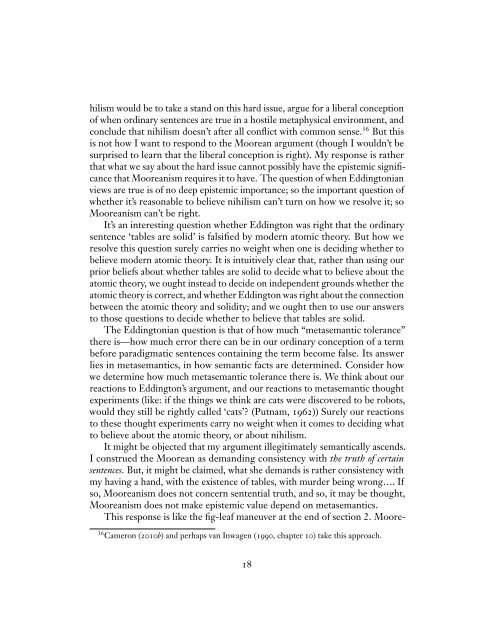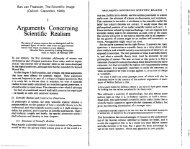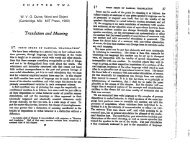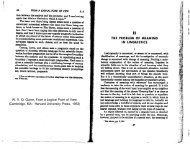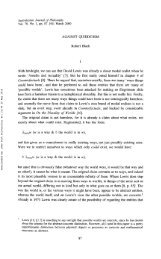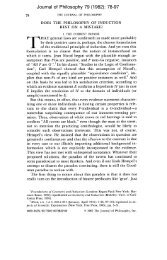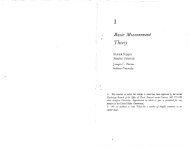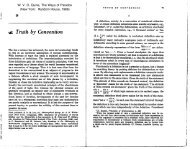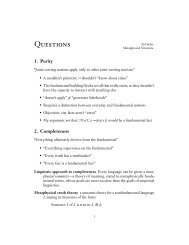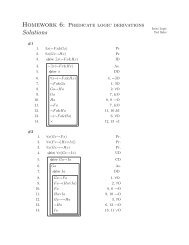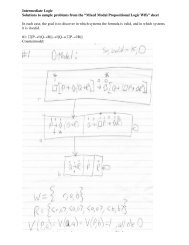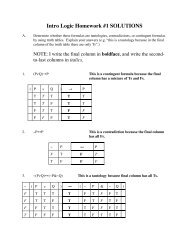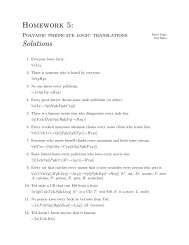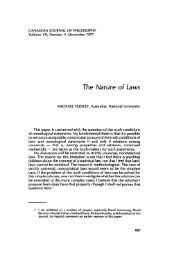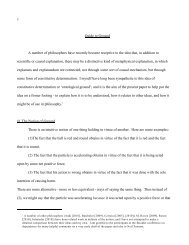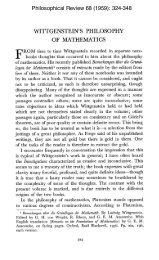Against Parthood∗ - Ted Sider
Against Parthood∗ - Ted Sider
Against Parthood∗ - Ted Sider
You also want an ePaper? Increase the reach of your titles
YUMPU automatically turns print PDFs into web optimized ePapers that Google loves.
hilism would be to take a stand on this hard issue, argue for a liberal conception<br />
of when ordinary sentences are true in a hostile metaphysical environment, and<br />
conclude that nihilism doesn’t after all conflict with common sense. 36 But this<br />
is not how I want to respond to the Moorean argument (though I wouldn’t be<br />
surprised to learn that the liberal conception is right). My response is rather<br />
that what we say about the hard issue cannot possibly have the epistemic significance<br />
that Mooreanism requires it to have. The question of when Eddingtonian<br />
views are true is of no deep epistemic importance; so the important question of<br />
whether it’s reasonable to believe nihilism can’t turn on how we resolve it; so<br />
Mooreanism can’t be right.<br />
It’s an interesting question whether Eddington was right that the ordinary<br />
sentence ‘tables are solid’ is falsified by modern atomic theory. But how we<br />
resolve this question surely carries no weight when one is deciding whether to<br />
believe modern atomic theory. It is intuitively clear that, rather than using our<br />
prior beliefs about whether tables are solid to decide what to believe about the<br />
atomic theory, we ought instead to decide on independent grounds whether the<br />
atomic theory is correct, and whether Eddington was right about the connection<br />
between the atomic theory and solidity; and we ought then to use our answers<br />
to those questions to decide whether to believe that tables are solid.<br />
The Eddingtonian question is that of how much “metasemantic tolerance”<br />
there is—how much error there can be in our ordinary conception of a term<br />
before paradigmatic sentences containing the term become false. Its answer<br />
lies in metasemantics, in how semantic facts are determined. Consider how<br />
we determine how much metasemantic tolerance there is. We think about our<br />
reactions to Eddington’s argument, and our reactions to metasemantic thought<br />
experiments (like: if the things we think are cats were discovered to be robots,<br />
would they still be rightly called ‘cats’? (Putnam, 1962)) Surely our reactions<br />
to these thought experiments carry no weight when it comes to deciding what<br />
to believe about the atomic theory, or about nihilism.<br />
It might be objected that my argument illegitimately semantically ascends.<br />
I construed the Moorean as demanding consistency with the truth of certain<br />
sentences. But, it might be claimed, what she demands is rather consistency with<br />
my having a hand, with the existence of tables, with murder being wrong…. If<br />
so, Mooreanism does not concern sentential truth, and so, it may be thought,<br />
Mooreanism does not make epistemic value depend on metasemantics.<br />
This response is like the fig-leaf maneuver at the end of section 2. Moore-<br />
36 Cameron (2010b) and perhaps van Inwagen (1990, chapter 10) take this approach.<br />
18


